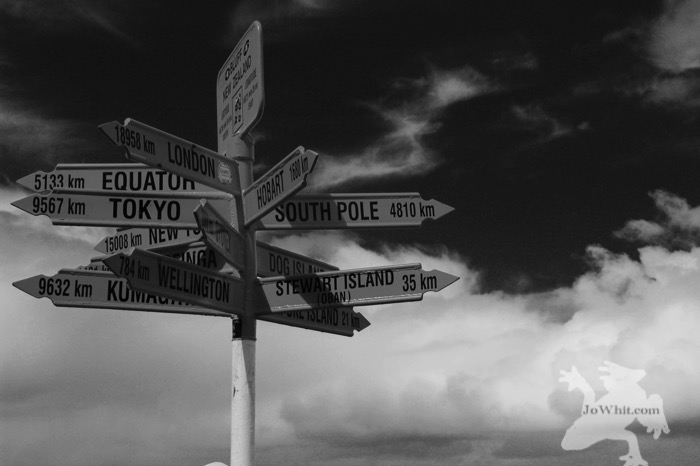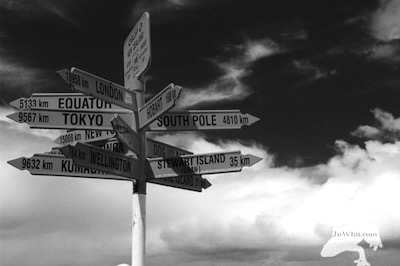
If all the TED Talks on “following your passion” hadn’t got me ready to scrawl a few notes, reading an article the other day would’ve. It was just enough to tip the pile of thoughts over prod me to organize them.
I’ll paraphrase the pertinent parts of the article in two points:
- Expecting to make a living by doing what we’re passionate about is a sign of the extreme luxury of a leisure-centric culture as well as of all the bad types of privilege.
- Historically, most humans were happy just having enough food to eat. So what’s wrong with us?
I respect the guy who said this – a lot. But after reading it, I also felt like something was missing – something like a fuller explanation. I agree that we can’t demand a tailor made career. I agree that the advice to follow your passion should be hedged by caveats and decorated with asterisks.
But is the desire for it really just a proof of bad character? Are no other factors at play or is this generation really just a bunch of privileged pansies with zero work ethic?
Even thinking about tackling the “follow your passion” universe made me want to take a nap immediately. It’s a slippery subject full of anecdotes, differing circumstances, cultural and generational considerations that thrash and twist like monster tentacles. It’d be all I could do just to get the topic to sit still for a moment so I could think it through. I might sprain my brain just trying to wrangle it.
All the more reason to try. Also I wouldn’t want to be thought of as a pansy for shrinking from complicated topics. I’ll be chopping it into bite-sized posts. Hope you don’t mind.
Question of the day:
Does the idea of making your passion into a career stem from being leisure-centric?
I don’t think that’s a reasonable explanation by itself but to see why, I need to ask another question.
WHY ARE WE EVEN ASKING WHETHER OR NOT WE SHOULD FOLLOW OUR PASSION?
Because we can… I’m actually not trying to be snarky here. Seriously, we can ask it because many people in this century have the unique opportunity to choose a career. This is a new thing. At face value this sounds like a great achievement for mankind…and it is…but in the same way that atomic energy and antibiotics are. If only swords didn’t have double-edges. But that’s a side note.
It still doesn’t explain why we have this new choice. Honestly, what created this unique situation is a complex recipe. I’m not sure the measurements, but I’m guessing the ingredients go something like this: widespread prosperity, a classless society¹, individuality, and side effects of the original idea of the American Dream. Then mix in largely unregulated technology² and the availability of options.³
Whatever it is has made something like a perfect storm so that nowadays we have an abundance of choices paired with a dearth of guidance. Some parents these days even feel pushy telling their children what gender their chromosomes say they are. Then, about 18 years later they wonder why their kid can’t seem to choose a major or why “Quarter life crisis” is even a thing.
Maximum choice; minimum guidance.

Zoo animals released into the wild probably receive more life-guidance than most first-world human kids get. Instead, they learn by example – negative example, for instance. They may not know what job to pursue but they sure know which job not to pursue, namely, their parent’s job. They know what job doesn’t let you take family vacations. All that discontent makes an impression.
Consider how opposite this is from much of human history where the father’s being a blacksmith meant that there was a good chance of the son being one too. Trades were handed down instead of handing the kid off. I’m not saying that grass is greener. After all, that pasture didn’t have universities let alone quite so much mobility, opportunity, or choice… which is my point. But at least they had some occupational guidance.
Consider how opposite this is from much of human history where the father’s being a blacksmith meant that there was a good chance of the son being one too. Trades were handed down instead of handing the kid off. I’m not saying that grass is greener. After all, that pasture didn’t have universities let alone quite so much mobility, opportunity, or choice… which is my point. But at least they had some occupational guidance.
It seems a little unfair. It’s like giving a girl a giant closet full of outfits, telling her to “be herself” without any fashion guidance or context, and asking her to be ready in 5. Then getting frustrated with her when she has trouble deciding – especially when “this is just part of being an adult and back in the day peasants just picked something out and stuck with it.”
Speaking of peasants, princesses had it way easier. Back then, they wouldn’t have needed to ask this question because they were born into a role which meant that when they reached the appropriate age, their dad king would marry them off to some snooty Prussian prince in order to score political points. It was so simple back then. Jasmine may have had to choose between a handful of dull suitors and a street rat but her career was never in question. They had it way easier. That’s basically the takeaway, if you were wondering.
Today’s businesses have already picked up on this. So instead of just providing a library of music, Spotify recommends songs and Facebook, instead of being a library, constantly tries to guide you into what to look at while E-Harmony attempts to lead you to the optimal spouse. Thus, I predict that match makers will again be in high demand. So if that’s your passion, this might be a good time. Just trying to offer some guidance.
MR. MASLOW
I’ve also heard the human desire for a meaningful job explained by Maslow’s Hierarchy of Needs. So when those basic needs are met, our eyes start wondering to the next thing – perhaps esteem or meaning. Today more than ever there is a possibility of loving your job…so when you don’t, you start wondering why.
As the article pointed out,
The way we evaluate jobs today has significantly shifted. The privilege of expecting your work to be fulfilling, or even a source of happiness is a very recent phenomenon.
Incidentally, so is the concept of marrying for love but I’ll save that point for another post. Once we’re not fighting for survival, we have time to wonder why we’re trying to survive in the first place. Is this bad?
Searching for why we’re here on Earth is a vital question to be asking. Trying to have a job that aligns with it seems like a step in the right direction – with the obvious caveat that providing for your family is itself also meaningful, though it’s connected less directly to the specific job.
Anyway, I’m no disciple of Maslow but his Hierarchy is an interesting tool, particularly considering criticisms against us pansy Millennials. Why aren’t most first-world 20 year olds content to just have a job that feeds and clothes them? Easy. Because they’ve never been hungry or naked. And whose fault is that? Their parents – and Child Services. So Child Services is basically to blame – that’s the takeaway, if you were wondering [4].
THE END
But seriously, did we expect a wealthy, free society of equals to produce a generation of people who treat employment the same way their grandparents did during the Great Depression and Dust Bowl?
Did we expect that having access to practically endless possibilities via the internet would make us more content to do the same old things? Who is surprised that having more outfit combinations makes it harder to choose one? It’s the ol’ Paralysis of Analysis. Both economics (e.g. Opportunity Cost) and social psychology (e.g. FOMO) relate to this within their own spheres.
More choice does not equal more happy. We can at least give Minimalists props for reminding us of that.
To conclude, the reason why there’s so much occupational angst and a desire for something more among first-worlders can’t only be attributed to lack of work ethic and pickiness. There’s just more to it. On the other hand – to all those lazy people out there, stop it. This doesn’t justify laziness. I’ve got long essays for you too (I doubt they’ll be reading this so if you see any, please tell them). There are just other explanations as to why we’re not quite satisfied with earning food and shelter than that we’re fickle, flannel wearing pansies.
In the next episode, I’ll have a friendly chat with some of the other objections to the “follow your passion” idea and may take a few swings at it myself.
In the meantime, just remember that princesses had it way easier
Footnotes:
If your bloodline doesn’t determine your occupational options, odds are social class isn’t a thing in your culture.
- Government law books just can’t keep up. See Dan Carlin’s talk.
- Googling “best career options” yields 22,300,000 results. Enough material to keep you busy until retirement.
- Joke.